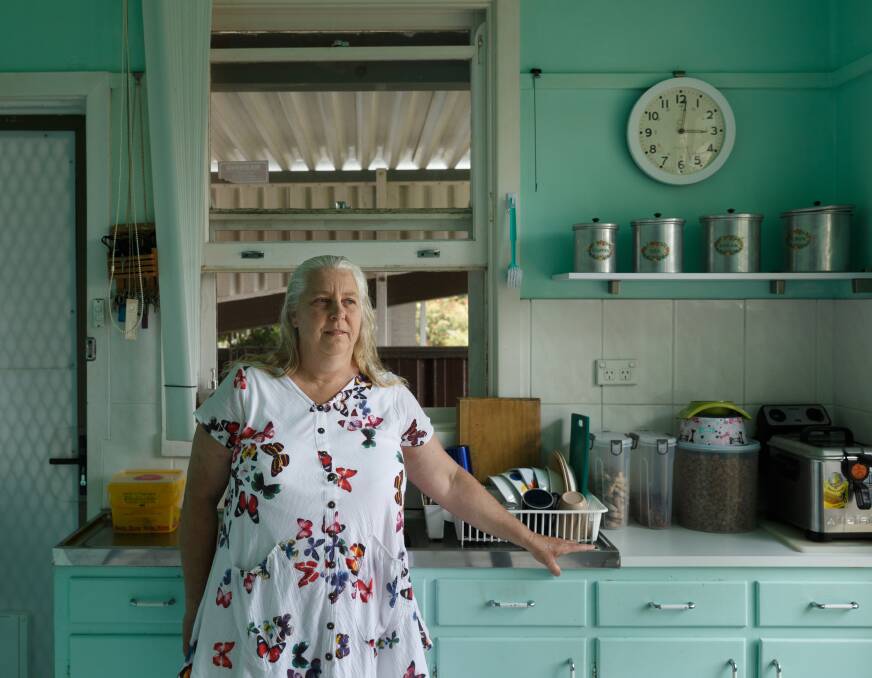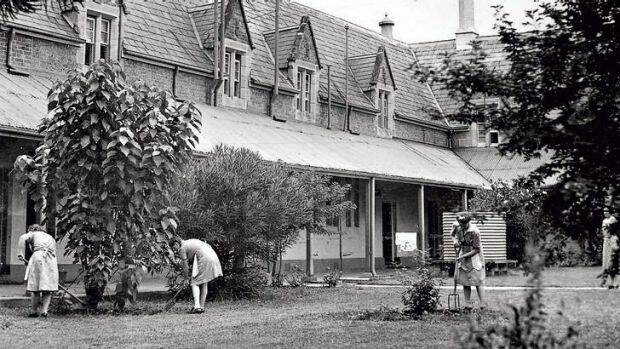
A NSW public servant knows more about the late Patricia Nichols troubled life than her daughter, Glenis Andersen, who was taken from her mother at the age of three because of government fears for the childs welfare.
Subscribe now for unlimited access.
or signup to continue reading
It makes the Hunter woman weep. Ms Andersen had high hopes her mothers state wardship file would explain the harsh childhood that left Mrs Nichols a violent alcoholic adult.
But about one third of the files more than 200 pages have been handed over to Mrs Andersen with the pages blacked out, and most of the rest carry heavy redactions because of privacy requirements.
Ms Andersen cried when asked how it felt to realise an anonymous public servant has information about her mothers history that she will never be allowed to know.
I just cant put that into words. Its making me cry now just to think about it that way because its so downright wrong. Bloody strangers in these government departments have all this information about me and my background and my mothers background and I dont have a right to know, she said.
My family history was stripped away from me when I was taken from my mother as a little girl. My mother is dead, my father is dead, I have little in the way of family left and it makes me feel lost that I dont know so much.
Its making me cry now just to think about it that way because its so downright wrong. Bloody strangers in these government departments have all this information about me and my background and my mothers background and I dont have a right to know.
- Former state ward Glenis Andersen.
Ms Andersen is one of many members of CLAN Care Leavers Australasia Network, representing adults raised in childrens homes, orphanages, foster homes or as state wards seeking government records to answer some of the biggest questions about their lives.
She is one of a number of Hunter people who will give evidence at a Senate inquiry in Newcastle on Thursday about difficulties faced by survivors seeking information and redress under the National Redress Scheme.
Ms Andersens mother died eight years ago, aged 69. Her mothers file is 50 years old and includes documents about her time as a child at the notorious Paramatta Girls Training School.

I wanted to understand why mum was like she was because she was a violent alcoholic, very rough. I was taken from her when I was three, given back at nine and I ran away at 14, Ms Andersen said.
It was only in mums later years that we started to get along. The older I got the more I realised she had a high level of trauma and drama in her life.
Ms Andersen will tell the Senate inquiry about the agony of knowing there are records kept by the state that will fill the gaps of what she doesnt know about relatives who still exist, and the first years of her childhood that are largely blanked out.
She was a state ward at the Child Welfare Departments McCredie Cottage at Holroyd south of Sydney before she was transferred to St Heliers home for children at Muswellbrook.
I dont remember a great deal about my life then. I seem to have a mental black where I really dont remember much at all under the age of eight. Some of the people running the homes really shouldnt have had anything to do with children, she said.
The Senate inquiry hearing on Thursday will include by representatives of the Department of Social Services and Department of Human Services, University of Newcastle senior lecturer Dr Tamara Blakemore, and abuse survivors Peter Gogarty and James Miller.
The hearing at Harbourview in Wharf Road is public and will be broadcast and recorded.

